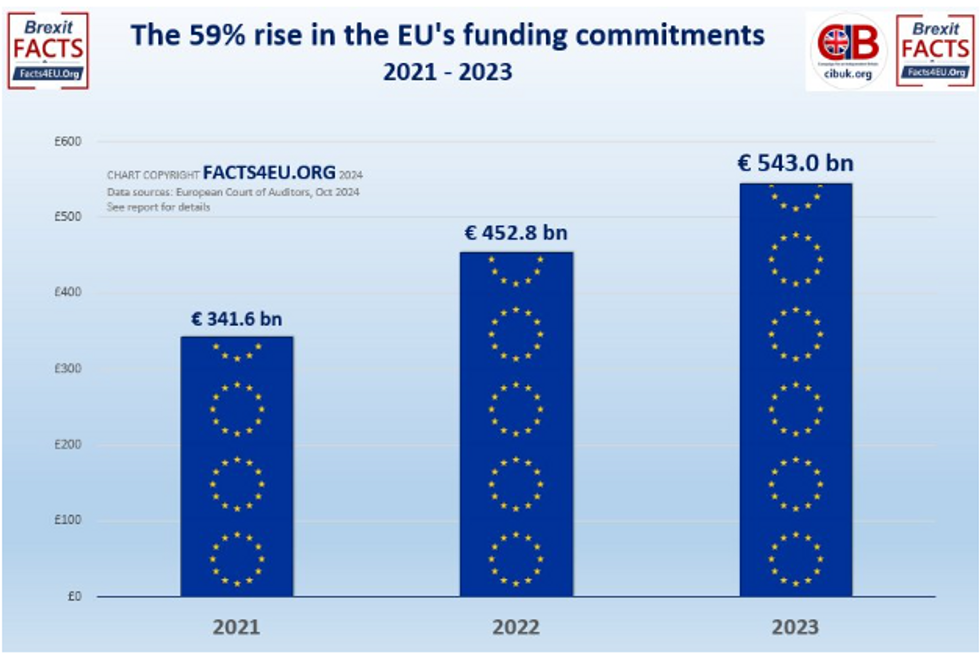Brexit has saved the UK at least £66 billion in budget contributions over the last two years, GB News can reveal.
In an exclusive analysis by GB News in association with Facts4EU and CIBUK shows Britain would have been the EU’s second largest funder had it voted remain, something Reeves and many of the Labour cabinet campaigned for vigorously.
This projected bill dwarves Remainer Reeves’ ‘£22 billion black hole’ by a factor of three, increasing her funding gap four times.
The Chancellor, who has spent much of her first 100 days in power trashing the UK’s finances, would have inherited a far worse balance sheet had her campaign to reject the EU referendum result succeeded.
The ardent Remainer has previously campaigned to Rejoin the EU. On her pre-election crowdfunding web page, Reeves said: “I have voted and campaigned for a People’s Vote on Brexit and for the EU to remain in the EU.”

Rachel Reeves campaigned to remain in the EU
GB NEWS
And that’s not the only bill Britain would have footed had Labour got their way in 2016.
A further £16.5 billion would have been lost to the EU’s post-Covid fund (RRF) budget, £53.4 billion to managing the EU’s debt and £34.7 billion to budget exposure for future obligations.
This brings the total amount saved by Brexit to £170.7 billion over the last two years, a figure that could pay Britain’s entire defense budget for the next three years (based on current expenditure of £51.7 billion per year).
Responding to the findings, former MP and Secretary of State Sir John Redwood said: “The UK has dodged a hail of EU financial bullets.
“Had we stayed in, there would be more low and no income migrants to support, more EU debts to take on and more rules and regulations driving business to the US and Asia.
“The Rachel Reeves black hole would be four times her estimate. UK taxes would have to rise in a frightening way. We would be lashed to a sinking ship.”

The EU”s funding commitments have surged since Britain left the EU
Facts4EU
This revelation comes after news that the EU is continuing to be dogged by economic problems, namely debt which has ballooned 93.7 per cent over the last three years. The EU’s exposure to future obligations has also shot up by 45 per cent, from £248 billion in 2022 to £298 billion in 2024.
The EU’s economic woes are partially being caused by the poor performance of some of the EU’s biggest economies. Germany’s GDP is set to contract for the second year in a row for example, while France is also flirting with an economic downturn.
This is in stark contrast to Britain’s economy which has been the fastest growing in the G7.